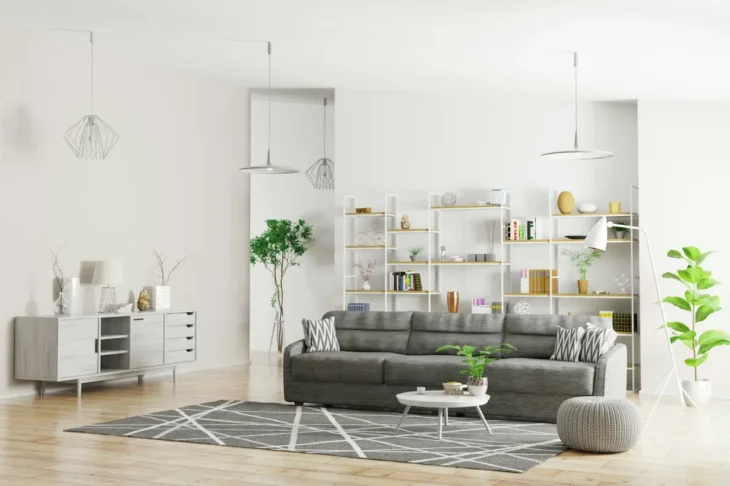
10 Things That Can Impact the Market Value of Property
Hoping to sell your home this year? More than seven million people are likely to do the same, especially as the average home price skyrockets across the country.
Homeowners are looking to cash in on the equity they have stored in their homes, as they can get far more bang for their buck today. They are then taking that equity and funneling it into their dream home.
There are a number of things that affect the market value of property listings. Before listing your home for sale, you should take steps to increase your estimated property value, and avoid making any mistakes that could decrease the value of a property.
So what are the factors that most affect a property’s value? Keep reading to find out now.
1. The Neighborhood
One of the most important factors when determining market value is if the home is in a good neighborhood. If the home isn’t in a great neighborhood, most homebuyers won’t even come to look at the house, as the area is more important than the house itself.
Buyers want to feel safe. And they also want to see neighbors who take care of their property and look respectful.
If your neighbor has been around for 30 years and has amassed a huge junk collection in the yard, you can bet your property value will decrease because of it. Unfortunately, there’s nothing you can do about it.
By adding trees, plants, shrubs, and a nice fence, however, you can help to block out the view of the neighbor’s property and make buyers feel a little better about the prospect of moving in.
2. Curb Appeal
The first thing buyers see when they pull up to your home is the yard. Is the grass full of weeds, and spilling over onto the driveway and sidewalk? Are the shrubs out of control and taking over the exterior of your home? Are the shutters falling off?
All of these can lower property value, even though they are simple fixes. Take a few weeks to focus on your curb appeal, cleaning up the yard and exterior of your home to see a boost in interest and price.
3. Proximity to Specific Types of Businesses
There are certain types of businesses, that if you live nearby, may increase the value of your home. If you live near a coffee shop, cute neighborhood bakery, or a nice restaurant, that might improve your home’s value and desirability.
However, there are many businesses that will do the opposite. A low-quality school is one of the worst offenders. A strip club or dive bar isn’t far behind.
Homeless shelters are a big one, and an unsightly power plant or loud shooting range will also deter buyers.
4. A Missing Garage
Homeowners frequently add useable square footage to the home by converting their garage into a bedroom, office, or another type of room. While this is a great way to improve the home for you, it can actually lower property value if you completely replace the garage.
If you are considering a garage conversion, do so in a way that keeps the garage functional for when you move out.
5. Flooring Type
Most buyers dislike carpets. Especially old carpet, as it’s smelly and shows stains. If you can’t replace the carpet, make sure to have it professionally cleaned before listing the home for sale.
If you can, consider hardwood floors, or laminate that looks like hardwoods. Buyers are attracted to hardwood and will easily shell out more money to get a house that has it.
6. An Upside Down Mortgage
Many homeowners find themselves in an unfortunate situation; they owe more on their mortgage than the property is worth. If you were to sell your home with an upside down mortgage, you wouldn’t make enough to pay back your lender.
As a result, you may not be able to sell your home. In this case, it might make more sense to stay in the house and try to get back on track with your mortgage, even if it takes a few years.
Otherwise, you wouldn’t have any funds to buy a new home and would have to go back to renting. Instead, focus on completing projects that could increase property value and hopefully get back to level ground.
7. Low-Quality Painting
Nobody likes painting. So when a prospective buyer shows up to see your home, they will be turned off if they look closely and see the painting was done poorly.
Both interior and exterior paint matters. If you painted your home yourself, make sure to go back through and touch it up to make it look good.
Make sure to use neutral colors as well. Few buyers are willing to purchase a home that uses bright, quirky colors.
8. Home Foreclosures Nearby
Home foreclosures on your street or in your neighborhood are bad for businesses as well. Your home’s value is directly tied to the value of other homes in the area. So a foreclosure isn’t doing you any favors.
Plus, foreclosures often sit vacant for months or years, meaning an unsightly, abandoned property.
9. Lack of Maintenance
If you have been putting off projects for months, it will show when it’s time to sell the home. That leaky roof? The window that doesn’t close all the way? The holes in your drywall?
All of these are relatively easy and inexpensive to fix and should be done before listing your home for sale.
10. Noise Pollution
If your home is near a busy highway or road, there’s going to be a ton of noise. There’s little you can do about it and will prevent your home from selling for higher.
You can improve it a bit by upgrading the windows and doors to a more insulating option, which improves energy efficiency and blocks sound more effectively. You can also add lots of plants and trees to the yard to help soften the sounds.
Raising the Market Value of Property
There are many factors that can lower the market value of property listings. Much of it is out of your control.
Still, there are many things you can do to remedy the issues and improve the value of your home as well. Take the time to complete these tasks before selling your home.
Looking for more tips like this? Check out our blog now to keep reading.

